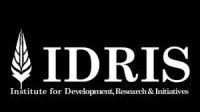Menelusuri Hadhanah: Pemeriksaan Mendalam atas Kasus Hak Asuh Anak di Pengadilan Agama
DOI:
https://doi.org/10.58764/j.prwkl.2023.1.53Keywords:
hadhanah, child custody, child rights, religious courtAbstract
This paper reviews the practice of in-depth examination of child custody cases in the Religious Courts, focusing on the concept of Hadhanah. Hadhanah is an important principle in determining child custody decisions, where the best interests of the child take centre stage. The study identifies the examination process, including the involvement of the child in decision-making, as well as the role of experts and Witnesses in providing a detailed picture. Hadhanah inquiries highlight the complexity of resolving child custody struggles in the context of Islamic law. This research aims to find out what factors make Judges conduct on-site examinations related to child dispute cases. The method used is field research with a qualitative approach. Data was obtained using empirical approach and documentation. This research is expected to provide an in-depth understanding of the hadhanah deskente, and can serve as a guideline for educators, researchers, and stakeholders. The conclusion emphasises the importance of a holistic and sensitive approach to children's needs in the religious justice system.
References
» click to expand references listAfifi, A. A. (2022). Women’s Scholarship in Islam And Their Contribution To The Teaching Knowledge. AL-IMAM: Journal on Islamic Studies, Civilization and Learning Societies, 3, 19–25.
Cahyani, T. D. (2021). Pendampingan Hukum Terkait Hak Asuh Anak (Hadhanah) di Klinik Keluarga Sakinah Pimpinan Daerah `Aisyiyah Kota Malang. Jurnal Dedikasi Hukum, 1(3), 329–339. Retrieved from https://doi.org/10.22219/jdh.v1i3.18148
Candra, A. A. (2022). Upaya Perlindungan Anak terhadap Perkara Hadhanah. Jurnal HAM, 13, 2. Retrieved from https://doi.org/10.30641/ham.2022.13.187-198
Eliza, M. (2009). Pelanggaran Terhadap UU Perkawinan dan Akibat Hukumnya. Ciputat: Adelina Bersaudara.
Hanif, H. A., & Salsabila, A. N. (2023). Konsep Hadhanah Pasca Perceraian Dalam Perdata Islam. Al Irsyad Jurnal Studi Islam, 2(2), 63–72. Retrieved from https://doi.org/10.54150/alirsyad.v2i2.177
Harlina, Y., & Asiyah, S. (2020). Putusan Hakim Pengadilan Agama Pekanbaru tentang Hadhanah Pasca Perceraian Menurut Perspektif Hukum Islam. Jurnal An-Nahl, 7(2), 130–144. Retrieved from https://doi.org/10.54576/annahl.v7i2.17
Islami, I., & Sahara, A. (2019). LEGALITAS PENGUASAAN HAK ASUH ANAK DIBAWAH UMUR (HADHANAH) KEPADA BAPAK PASCA PERCERAIAN. ADIL: Jurnal Hukum, 10(1). Retrieved from https://doi.org/10.33476/ajl.v10i1.1070
Kiara, R. T., & Bakri, K. (2022). HAK ASUH ANAK (HADHANAH) ADOPSI PASCA PERCERAIAN MENURUT HUKUM ISLAM INDONESIA. Reformasi Hukum Trisakti, 4(5), 1125–1140. Retrieved from https://doi.org/10.25105/refor.v4i5.15091
Maghfirah, & Gushairi. (2020). Konsep Shared Parenting dalam Hadhanah Pasca Perceraian; Kajian Perundang-Undangan Perkawinan Islam Kontemporer. Hukum Islam, 20(2). Retrieved from https://doi.org/10.24014/jhi.v20i2.12169
Maghfiroh, V. A. (2020). DISKURSUS RADHA’AH DAN HADHANAH BERPERSPEKTIF GENDER. Equalita: Jurnal Studi Gender Dan Anak, 2, 2. Retrieved from https://doi.org/10.24235/equalita.v2i2.7426
Masadah. (2020). Hadhanah Dalam Prespektif Imam Madhab dan Kompilasi Hukum Islam Serta Pengaruhnya Terhadap Pendidikan Anak. DINAMIKA?: Jurnal Kajian Pendidikan Dan Keislaman, 5(2), 69–94. Retrieved from https://doi.org/10.32764/dinamika.v5i2.1030
Maulana, D. (2023). Telaah Pasal 105 Kompilasi Hukum Islam Tentang Hadhanah. Posita: Jurnal Hukum Keluarga Islam, 1(1), 1–9. Retrieved from https://doi.org/10.52029/pjhki.v1i01.133
Mughnia, A. (2021). Konsep Hadhanah Perspektif Mazhab Syafi’i dan Implementasinya dalam Putusan Mahkamah Syar’iyah Kota Banda Aceh Nomor 314/Pdt G/2017/MS Bna. El-Hadhanah?: Indonesian Journal Of Family Law And Islamic Law, 1(1), 43–62. Retrieved from https://doi.org/10.22373/hadhanah.v1i1.1615
Nurfitriani, N. (2022). KONSEP AL-QUR’AN DAN HADIS TENTANG RADHA’AH DAN HADHANAH PERSPEKTIF GENDER. SANGAJI: Jurnal Pemikiran Syariah Dan Hukum, 6(1), 51–70. Retrieved from https://doi.org/10.52266/sangaji.v6i1.772
Oktoviona, D. M., Yaswirman, Y., & Yasniwarti, Y. (2023). PELAKSANAAN DISPENSASI KAWIN DI BAWAH UMUR PASCA BERLAKUNYA UNDANG-UNDANG NOMOR 16 TAHUN 2019 TENTANG PERUBAHAN ATAS UNDANG-UNDANG NOMOR 1 TAHUN 1974 TENTANG PERKAWINAN DI PENGADILAN AGAMA KELAS IB TANJUNG PATI KABUPATEN LIMA PULUH KOTA. UNES Law Review, 5(4), 1410–1425. Retrieved from https://doi.org/10.31933/unesrev.v5i4.461
Pratiwi, R. W. (2020). Perlindungan Hukum terhadap Kelalaian Pemenuhan Pembayaran Nafkah Anak Pasca Perceraian berdasarkan Putusan Pengadilan Agama Blitar. Retrieved from http://repository.unisma.ac.id/handle/123456789/485
Pruett, M. K., Hoganbruen, K., & Jackson, T. (2000). The Best Interest of the Child: Parents’ versus Attorneys’ Perspectives. Journal of Divorce & Remarriage, 33(1–2), 47–63. Retrieved from https://doi.org/10.1300/J087v33n01_03
Rahmatullah, P., Suryaningrum, F., & Sulastri, E. (2022). Children’s Protection in The Issue of Hadhanah Based on Islamic Law Perspective. Alfuad: Jurnal Sosial Keagamaan, 6(2), 55–62. Retrieved from https://doi.org/10.31958/jsk.v6i2.6009
Refliandi, I., & Eliza, M. (2023). Analisis Putusan Hakim Pengadilan Agama Solok Tentang Asal Usul Anak dan Relevansinya dengan Maqashid Syariah. Perwakilan: Journal of Good Governance, Diplomacy, Perlembagaan Adat and Social Networks, 1, 29–37.
Rohmah, A. P., Suyaman, P., & Mulyanti, A. S. (2023). Determination of Custody Rights (Hadhanah) for Children Who Are Not Yet Mumayiz to the Father. Rechtsnormen Journal of Law, 1(2), 48–57. Retrieved from https://doi.org/10.55849/rjl.v1i2.307
Suryaningsih, S. S., Rojak, E. A., & Himayasari, N. D. (2023). ANALISIS FIQH MUAMALAH DAN PASAL 1320 KUHPERDATA TERHADAP PERJANJIAN ENDORSEMENT MELALUI DIRECT MESSAGE (Studi Kasus Online shop Tie_Dyehouse). Bandung Conference Series: Sharia Economic Law, 3(2), 132–144. Retrieved from https://doi.org/10.29313/bcssel.v3i2.7682
Wijayanti, A. (2020). Judge’s Assessment of the Statement of a Witness Victim with Mental Retardation in a Rape Case. Ius Poenale, 1(1), 13–26.
Downloads
-
PDF
views: 541
Published
How to Cite
Issue
Section
License

This work is licensed under a Creative Commons Attribution-ShareAlike 4.0 International License.
Copyright (c) 2023 M. Khairul Arwani, Doni Dermawan, Sarah Afifah




